#Edith Meinhard
Explore tagged Tumblr posts
Text

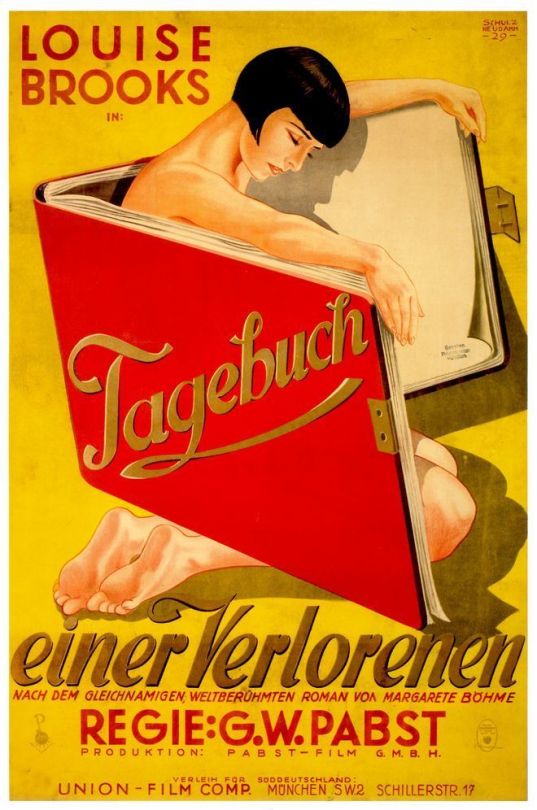
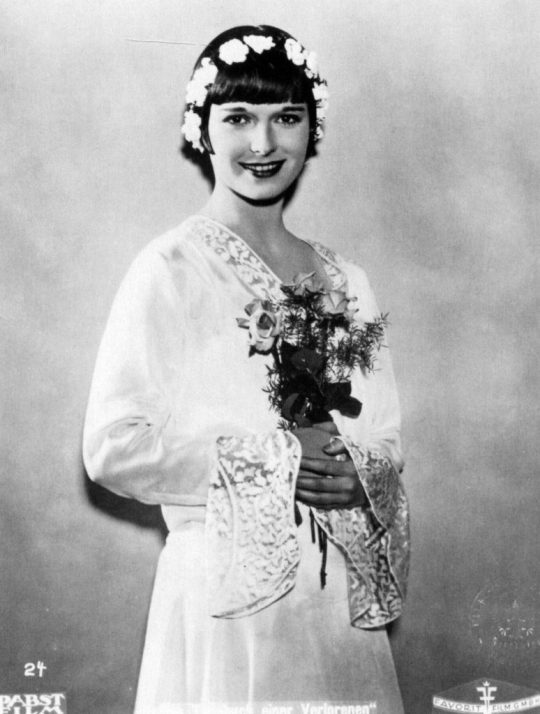




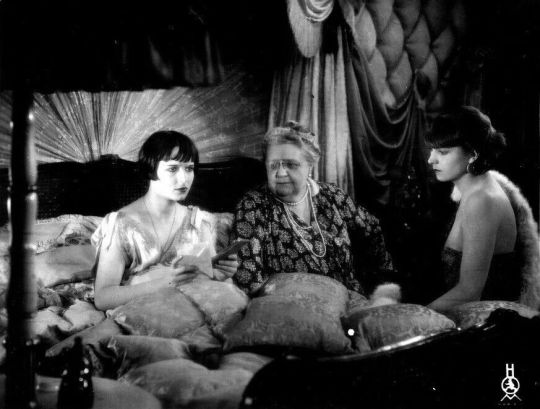
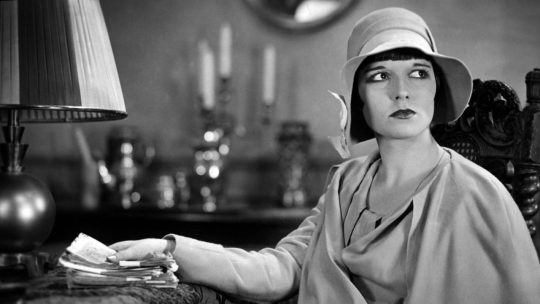
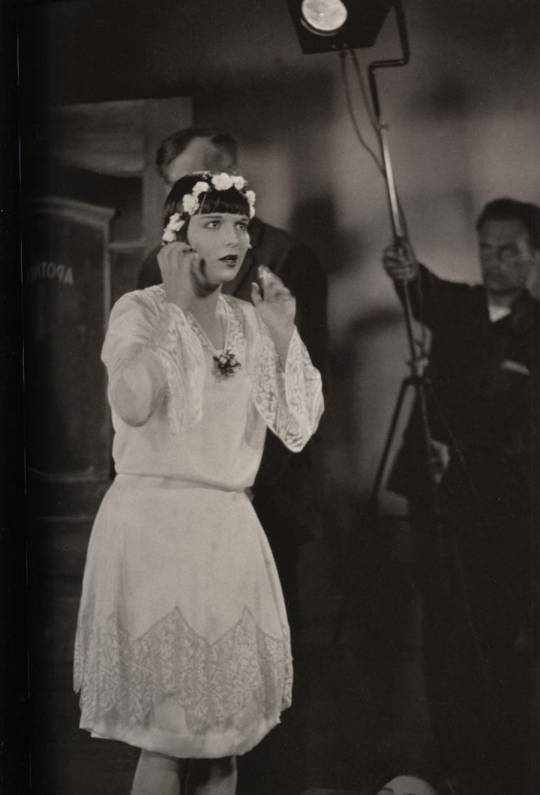
Diary of a Lost Girl (Tagebuch einer Verlorenen) (1929) G.W. Pabst
January 5th 2023
#diary of a lost girl#Tagebuch einer Verlorenen#1929#g.w. pabst#louise brooks#André Roanne#Josef Rovenský#fritz rasp#Edith Meinhard#Vera Pawlowa#Franziska Kinz#Arnold Korff#Andrews Engelmann#Valeska Gert#Sybille Schmitz#Martha von Konssatzki#Marfa Kassatskaya#brooksie#favourite
5 notes
·
View notes
Photo



1 note
·
View note
Photo

Fritz Rasp and Louise Brooks in Diary of a Lost Girl (G.W. Pabst, 1929)
Cast: Louise Brooks, Fritz Rasp, Valeska Gert, Josef Rovensky, Vera Pawlowa, Franziska Kinz, André Roanne, Arnold Korff, Andrews Engelmann, Edith Meinhard, Sybille Schmitz, Kurt Gerron. Screenplay: Rudolf Leonardt, based on a novel by Margarete Böhme. Cinematography: Sepp Allgeier, Fritz Arno Wagner. Art direction: Emil Hasler, Ernö Metzner. Music: Otto Stenzeel.
Diary of a Lost Girl feels like a falling-off from the standard set by Pabst's first film with Louise Brooks, Pandora's Box (1929), in large part because its source, a 1905 novel by Margarete Böhme, was less distinguished than the one for the previous film: Frank Wedekind's two Lulu plays. Difficulties with censors resulted in some major cuts that sometimes leave the narrative hard to follow. Brooks plays Thymian Henning, the daughter of a well-to-do pharmacist (Josef Rovensky). She is raped and impregnated by her father's assistant, Meinert (Fritz Rasp). When she gives birth, her baby is taken away and she is expelled from her father's home, with the connivance of the housekeeper, Meta (Franziska Kinz), who later marries Thymian's father. She escapes from the oppressive reformatory to which she is sent and winds up in a high-class brothel. When her father dies, she expects an inheritance and marries her friend Count Orloff (André Roanne), who has been disinherited by his own father (Arnold Korff). But when she receives the money she discovers that Meta and the two children she had with Thymian's father have been left penniless. Rather than allow her young half-sister to suffer her own fate, Thymian gives her fortune to Meta. Learning of this, Count Orloff leaps to his death from an open window, but his remorseful father takes Thymian in, allowing her not only to prosper but also to take revenge on the reformatory personnel who had mistreated her. The elder Count Orloff then observes, "A little more love and no one would be lost in this world." That a story so improbable and sententious should work at all is a tribute to Pabst's willingness to take it seriously and to marshal a cast that performs it with apparent conviction. Brooks, however, feels miscast, especially after her triumph in Pandora's Box: It's difficult to accept the broad-shouldered, strong-backed Brooks as a 15-year-old, which she is at the film's beginning, and the performance feels one-note after the impressive range she achieved in the previous film. Diary of a Lost Girl was not a critical or commercial success, owing in part to the arrival of sound, which made it feel obsolete, and it didn't receive an American commercial release.
5 notes
·
View notes
Text
“Es wäre wohl das beste für mich, wenn ich im Wochenbett stürbe. Doch wünsche ich es nicht. Mir ist so bange vor dem Tod, vor dem Versinken in die ewige Nacht und das ewige Nichts.” (It would probably be best for me if I died in childbirth. But I do not wish for it. I am so afraid of death, of sinking into the eternal night and the eternal nothingness.)
Tagebuch einer Verlorenen.
- Margarete Böhme -
Tagebuch einer Verlorenen (1929) ‘Diary of a Lost Girl’.
Directed by G.W. Pabst.
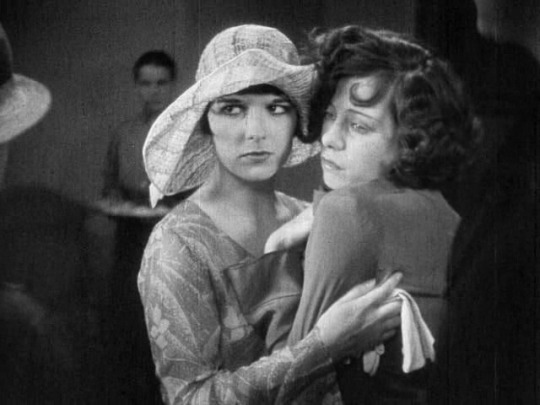
Louise Brooks - Edith Meinhard
0 notes
Photo
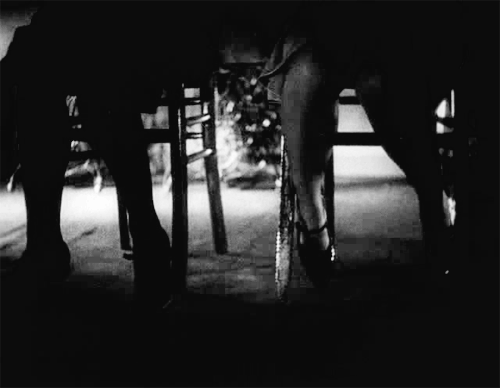
Louise Brooks and Edith Meinhard: Tagebuch einer Verlorenen (Diary of a Lost Girl), Dir: Georg Wilhelm Pabst, 1929. Source
#louise brooks#edith meinhard#tagebuch einer verlorenen#diary of a lost girl#georg wilhelm pabst#film#1929#gif
94 notes
·
View notes
Photo
It's my birthday

983 notes
·
View notes
Photo

Diary of a Lost Girl - Convoluted German Morality Play
Sometime around 1990 I stumbled upon a biography of Louise Brooks at a bargain book store and became obsessed with seeing her films afterwards. Not many have survived, and at the time they were much harder to track down from strange little third party vendors and film buffs. This was the first one that I managed to track down, and the first moving image of Louise Brooks was quite a stirring sight for after nothing but still photographs. This was the second of the two German films she did for GW Pabst in 1929, and the more convoluted of the two. She plays a young girl who gets seduced by the pharmacist employee of her father on her confirmation day, gets pregnant, has to give up the baby and go live in a brutal ‘home for wayward girls’. She escapes from the home and joins a brothel where she becomes a prostitute for a while, and then eventually marries a rich count and goes back to expose the abuses at the 'boarding school’. Certain scenes are very memorable and clever, and others seem a little strange and wacky, but little did I care, as I was able to gaze upon my screen crush for the entire picture, who looked just fabulous.
The movie was heavily censored at the time of its release, so it is hard to say how much of the film that has survived is really part of the original vision or storyline. Title cards would routinely get chopped off by local censors if it rubbed them the wrong way, sometimes making certain scenes incomprehensible. Years later I was able to get ahold of a nice DVD copy of this film with several scenes restored, but it is still a pretty strange little morality play.
3.5 stars out of 5
Released 1929, first viewing February 1991
10 notes
·
View notes
Photo

Lovely UFA portrait of Edith Meinhard, who starred in such films as Diary of a Lost Girl (1929) & Rasputin, Dämon der Frauen (1932).
#she's also still very much alive n' kicking#at 108 years old!#pretty incredible#edith meinhard#ufa#diary of a lost girl#rasputin#what i'd give to ask her about what it was like on the set of rasputin...
10 notes
·
View notes
Photo


“Diary of a Lost Girl”, 1929. ‘Thymiane’, the Countess Osdorff, ( Louise Brooks) is invited to inspect the same horribly sadistic reformatory she was sent to after her rape and pregancy. There, she comes face to face with an old friend, ‘Erika’ ( Edith Meinhard ). Thymiane tells the board of the school off and takes Erika out of the reformatory to live with her.
#diary of a lost girl#1929#louise brooks#edith meinhard#1920's#german film#g.w. pabst#silent film#reform school#my gifs#gif warning
20 notes
·
View notes
Photo


#louise brooks#edith meinhard#tagebuch einer verlorenen#diary of a lost girl#1929#**myedits:gif**#**louisebrooks#**edithmeinhard#**tagebucheinerverlorenen#gif warning#1920s
56 notes
·
View notes
Photo


Tagebuch einer Verlorenen (Diary of a Lost Girl) - Georg Wilhelm Pabst - 1929
Edith Meinhard
14 notes
·
View notes
Photo

"I know this house and its 'blessings'. Your ignorance won't help her."
Louise Brooks & Edith Meinhard, Diary of a Lost Girl (1929)
#diary of a lost girl#Tagebuch einer Verlorenen#G W Pabst#louise brooks#edith meinhard#silent film#weimar film
45 notes
·
View notes
Photo


#Diary of a Lost Girl#louise brooks#Edith Meinhard#burning as hot steaming coals#GW Pabst#silent film
16 notes
·
View notes
Photo

Edith Meinhard and Louise Brooks in Diary of a Lost Girl, 1929
18 notes
·
View notes
Photo
♡ All This Making Love

983 notes
·
View notes